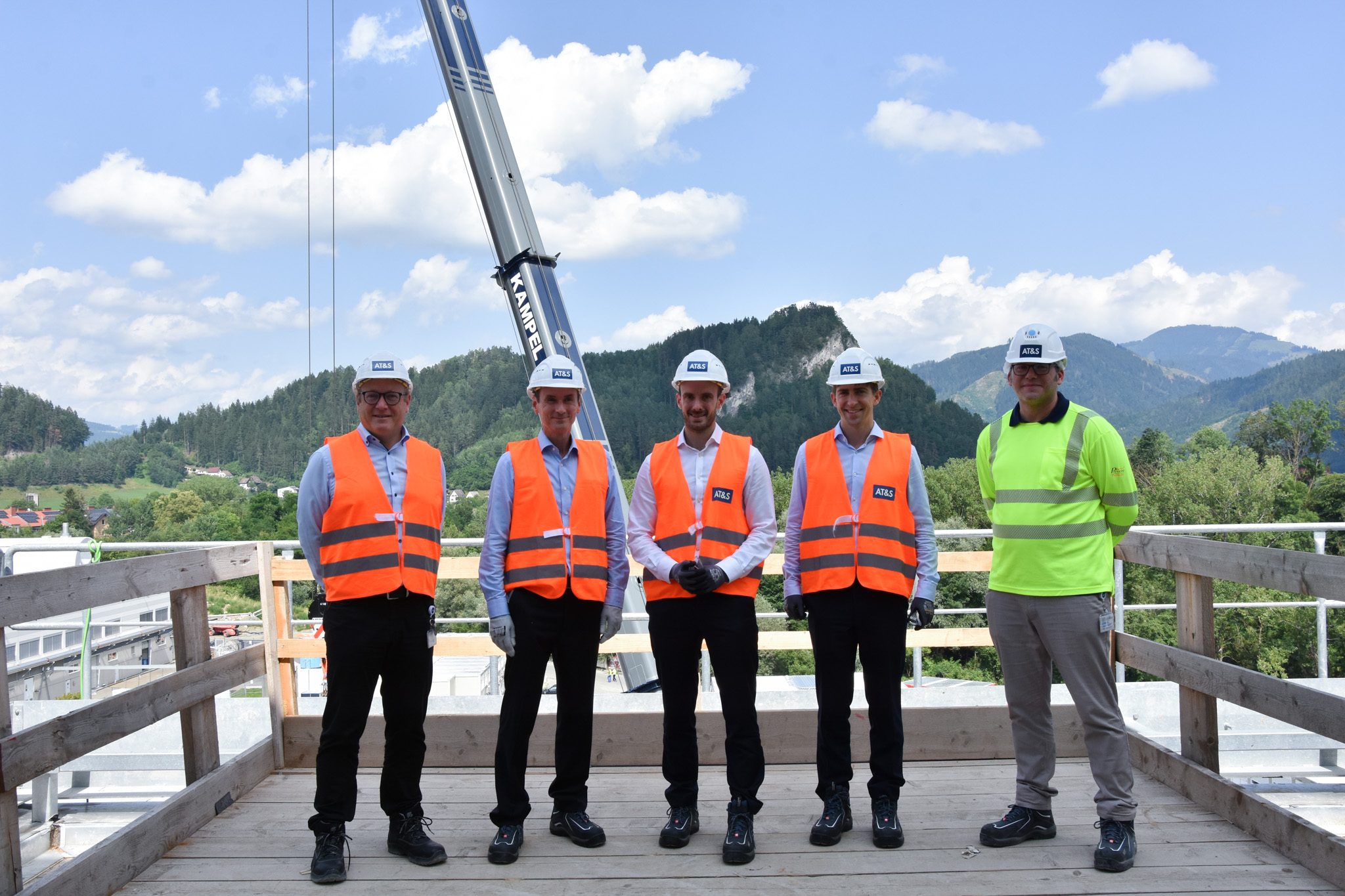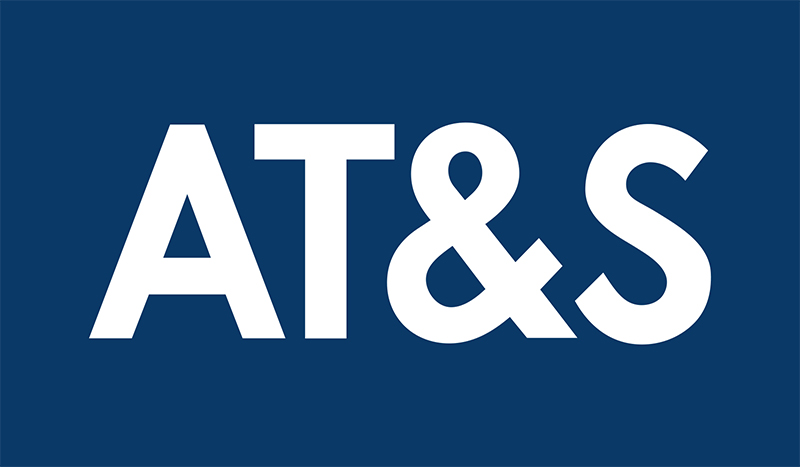State Secretary Tursky emphasises the goal of European chip sovereignty when visiting AT&S

During his visit of the AT&S headquarters in Leoben, State Secretary Florian Tursky was given an insight into the area of microelectronics that is indispensable for processing semiconductors to finished microchips: the new research and production centre for interconnection technology and substrates, which the global high-tech group AT&S is currently establishing as part of IPCEI Microelectronics II, brings the latest process technology to Austria and will be an important foot in the door to the global market for energy-efficient microelectronics in Europe.
Leoben, July 18, 2023 – Setting the course for Europe’s microelectronics industry. The successful summit at the Federal Chancellery on Thursday showed the determination of policymakers and industry to strongly position Austria in this field. Time is short. Europe is lagging behind in international comparison. Asian and US companies dominate all levels of microchip production, while Europe manufactures only 10% of microchips, but buys 20% of the global output. The Commission aims to counter this situation with the European Chips Act, which was recently adopted by the EU Parliament: the target is to produce at least 20% of the globally required microchips in the EU by 2030. Austria can play an important role in this effort and Federal Chancellor Karl Nehammer formulated a strong goal: “We want microchips made in Austria to become as well-known as the Lipizzaner horses and Mozartkugel chocolates.”
To achieve this goal, it will first of all be crucial to close strategic technology gaps in the supply chain for increasingly complex high-performance processors. So-called back-end technologies, as offered by AT&S, i.e. interconnect technology and substrates which are indispensable for turning semiconductors into finished microchips, play a central role in this context.
“At AT&S, with our new research and development centre, we are showing which direction Europe’s microelectronics industry can embark on,” CEO Andreas Gerstenmayer explained when Florian Tursky, State Secretary for Digitalisation and Telecommunications, visited Leoben on Tuesday, and outlined the situation: “Europe must build crucial know-how and expertise in order to free itself from dependencies and gain access to key elements in the supply chain.”
State Secretary Tursky, who had already taken a look at the first machines and was shown around the cleanroom of the new research and development centre, emphasised: “The importance of microelectronics with regard to a functioning EU chip ecosystem and the technological sovereignty Europe is striving for is growing steadily. Only with the key technologies of microelectronics will we be able to successfully walk the road into the digital decade as targeted by the EU.”
Based on existing programmes such as IPCEI ME II, the EU’s commitment to future investments as part of the Chips Acts clearly shows that policymakers are aware of the importance of microelectronics. It is essential to implement competitive funding conditions now – both globally and in a European context. Andreas Gerstenmayer: “We now have the unique opportunity to put Austria and Europe in the fast lane. To do so, we need more research and development, better conditions for companies producing here and an investment package that keeps up with the subsidies for the chip industry in the USA and China.”
The European lighthouse project, which AT&S is building at its headquarters in Leoben as part of IPCEI ME II, is a development and production centre for interconnect technology and substrates in the high-end technology segment for high-performance microprocessors that is unique in Europe and the western world. In the long term, this new high-tech centre can initiate the establishment of microelectronics packaging technologies in Europe.
This is a technology segment with considerable growth potential, where significant performance increases are expected for several high-end applications, while energy consumption is expected decline. This applies in particular to complex process technologies towards the 2-nanometer chip processors addressed by the EU, where we increasingly reach the physical limits of transistor miniaturisation, but equally to future fields such as artificial intelligence, high-performance computers, edge computing, IoT, cloud computing, 5G/6G, servers, networks and much more.
In these key areas, which can make a significant contribution to achieving the climate goals, Europe is currently lacking the basis on the hardware side, more specifically: the technological know-how. This is because Europe’s microelectronics industry is primarily successful in existing niches for the automotive and industrial sectors. As a leading manufacturer of microelectronics for high-performance applications in data centres and supercomputers, AT&S is an exception here.
Opportunities are there for the taking, even if time is short. “The new substrates for high-performance processors and cutting-edge interconnect technologies produced at the AT&S research and development centre can become the seed of a flourishing European microelectronics ecosystem if smart decisions are made. As demographic change is intensifying, this also requires targeted immigration of highly qualified workers and the appropriate framework conditions for integration,” Andreas Gerstenmayer emphasised and pointed out in his conversation with State Secretary Florian Tursky that AT&S is creating a European network in Leoben which connects numerous research institutions, universities and industry partners and thus supports the development of innovative solutions to achieve the climate goals.
AT & S Austria Technologie & Systemtechnik Aktiengesellschaft – Advanced Technologies & Solutions
AT&S is a leading global manufacturer of high-end IC substrates and printed circuit boards. AT&S industrializes leading-edge technologies for its core business segments Mobile Devices & Substrates, Automotive & Aerospace, Industrial and Medical and high-performance processors for VR and AI applications. AT&S has a global presence with production sites in Austria (Leoben, Fehring) and plants in India (Nanjangud), China (Shanghai, Chongqing) and Korea (Ansan near Seoul). A new high-end production site for IC substrates is currently being established in Malaysia (Kulim). In Leoben, a European competence center including series production for IC substrate technologies is being built. Both sites will start production in the financial year 2024/25. The company employs more than 13,500 people.
Share news:
Further News
